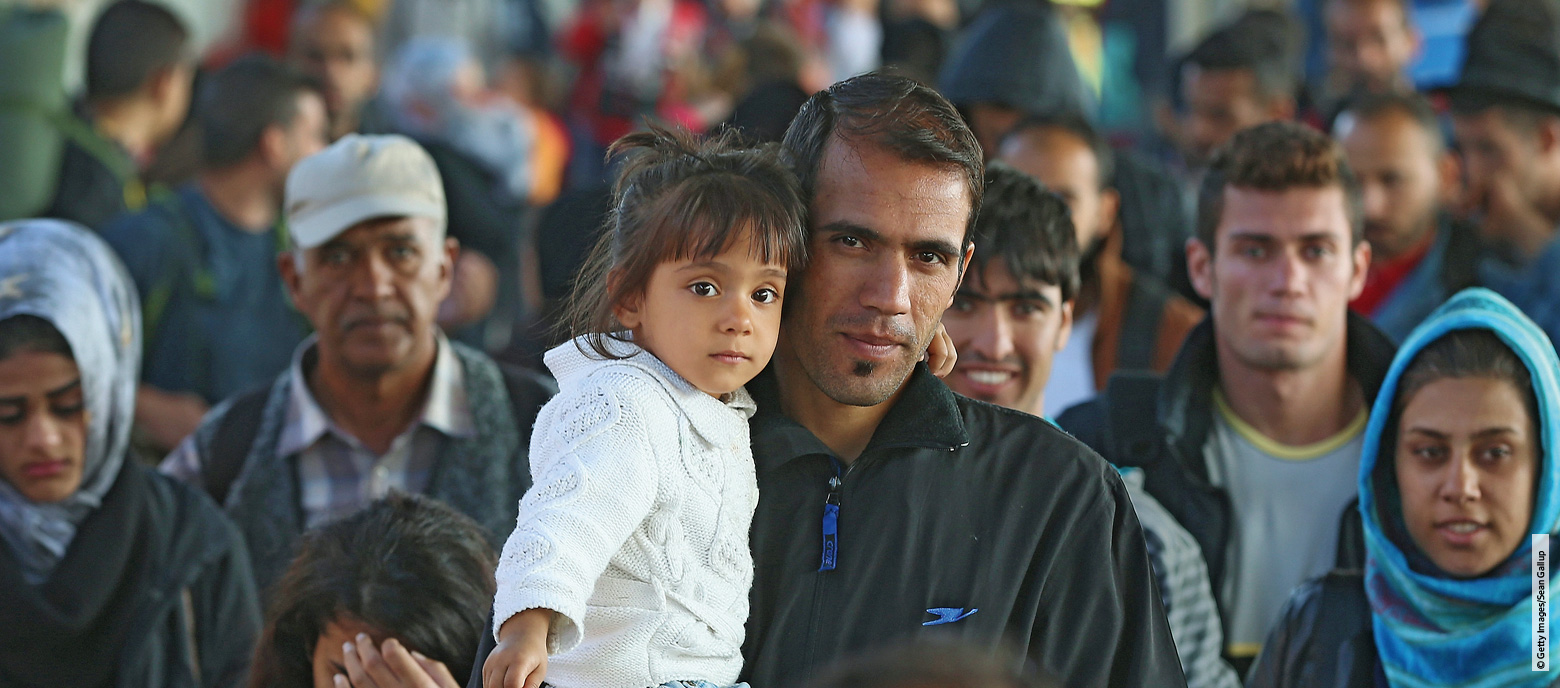Germany‘s responsibility
What the world expects
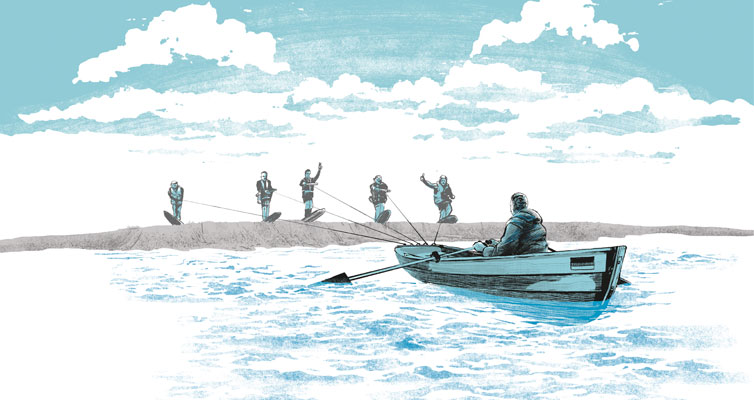
The question of what the world expects from Germany is being asked today, at a time when the globe is in a state of turbulence. Clear strands are visible in the present situation: an abdication of global leadership by a USA turning increasingly protectionist and xenophobic; the rise of a strong China, committed to global markets, in which it sees its own continued growth and prosperity; the European Union shaken by Brexit and the unpredictable consequences of a series of elections, most recently in Italy; and amid all this, the emergence of an economically powerful Germany as the lynchpin of liberal democratic Europe. The case seems self- evident that Germany should engage with the rest of the world to help manage this turbulence, contribute to keeping China within the global fold, lead Europe out of its current difficulties, and compensate for the inattention, even surliness, of an increasingly truculent Trump Administration.
IN THIS ESSAY
1. The starting point
How the world order is shifting and the questions this raises.
2. The others
Which actors are playing a key role in global development on the international stage.
3. The future
What these observations could mean for Germany and its role.
Government stability cannot be taken for granted
This is, of course, a tall order by any standards, not least for a Germany emerging from a protracted phase of coalition-making that has finally given it a Government whose stability and popularity cannot be taken for granted. Yet observers around the world have no doubt that Germany must be a strong and reliable international actor if the world is to successfully navigate the turbulence that characterises our age.
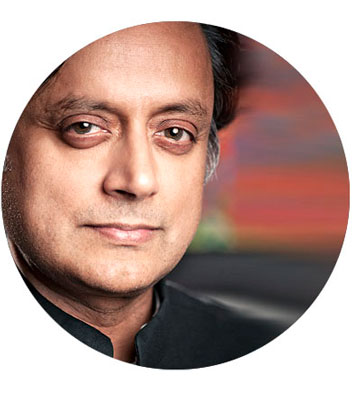
Many of the major issues confronting the planet seem ripe for a steady German response. There are the twin backlashes against globalisation: the economic backlash in many Western countries which, unlike Germany, see themselves as losers rather than gainers from the globalisation of the world economy, and the ‘cultural backlash’ against cosmopolitanism and immigration, arising in many countries in the name of a more authentic and rooted nationalism. There is, at the same time, the seemingly unmanageable flow of refugees, which leaves many countries caught between bewilderment and xenophobia; though Germany has set a rare example of consistency and compassion in opening its doors to large numbers. There is the mounting challenge to democracy itself, as polls reveal more and more people, especially the ‘millennials’, to be questioning the value of democracy itself. A recent study by the Harvard scholars Yascha Mounk and Roberto Stefan Foa finds a considerable dilution of support for democracy and growing impatience with the democratic process.
Democracy is being challenged even as we face a worldwide backlash against globalisation and cosmopolitanism. An ugly by-product of this is the rise of mandatory patriotism and, at its heart, conformity as the new badge of allegiance. The global rise of officially mandated nationalism is a surprising phenomenon of our times.
‘Many of the major issues seem ripe for a steady German response.’

Champion of liberal democratic values
The century began with globalisation seeming unstoppable, national boundaries appearing ever more permeable and states surrendering more and more of their sovereignty to organisations like the European Union, to regional and global trade pacts refereed by the World Trade Organization and to international legal institutions like the International Criminal Court. Few could have foreseen such an abrupt reversal of this trend halfway through the second decade of the century. Germany, which has played a steady and stable hand throughout on these issues – and which is seen as a country that has benefited from globalisation while remaining true to itself – is remarkably well positioned to guide the world through this crisis.
As a champion of liberal democratic values – which it had to fight to rediscover for itself after the horrors of the Third Reich – and the custodian of the principles of freedom in the heart of Europe, Germany is particularly expected by the rest of the world to remain true to this mission. It must continue to set an example of democracy, freedom of the press and respect for human rights if it expects others to emulate these values – values to which not every country is unshakeably committed.
Are China and Germany drawing closer together?
One country that seems to stand for a different approach to the world – authoritarian, centralist, yet committed to the welfare of its own people – is China. Some observers see China and Germany in an embrace born of a mutual perception that they are the two most important countries in today’s world, leading the East and the West, respectively, in a new concert of nations that might succeed the USA-led world order in place since 1945. In light of what some critics have dubbed ‘the Trump vacuum’ following the USA’s withdrawal from the 2015 Paris Agreement to slow global warming, there is a virtuous element in Germany and China making common cause as two responsible nations compensating for a truant America. At the 2017 G20 Summit in Hamburg, Merkel stated that the Sino-German relationship must expand in a ‘time of global insecurity’.
Shaped by Westphalian principles
But I suspect Germany is well aware that a Merkel-Xi partnership would not necessarily be welcomed elsewhere in the world. While Germany does not share the USA’s geopolitical rivalry with Beijing, it is surely conscious of the mistrust in South and South-East Asia regarding China’s strategic intentions, its tendency to assert claims at the expense of other countries in the region and its willingness to back those claims with military muscle (as evidenced in the South China Sea, on its Indian frontier and, most recently, along its Himalayan border with Bhutan). President Trump’s abandonment of the Trans-Pacific Partnership free-trade agreement, which would have created a USA-centred free-trade bloc comprising Pacific Rim countries from Chile to Viet Nam, has eliminated one mechanism for subsuming Chinese ambitions in a larger partnership. But that is a vacuum Germany cannot fill alone.
‘Germany should recognise that it has a key role to play in strengthening multilateral institutions.’
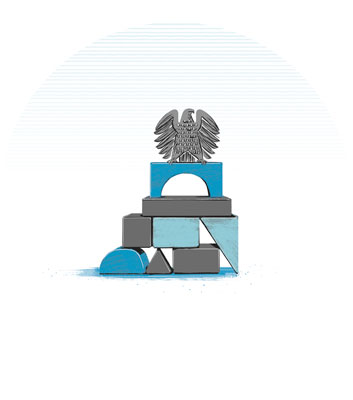
Instead, Germany should recognise that it has a key role to play in strengthening multilateral institutions. It is the institutions of global governance that have so far kept the peace – institutions that need to change, adapt and be protected with vigour and commitment. The world as we know it has largely been shaped by Westphalian principles, but the strongest potential disruption to Westphalian sovereignty is the rise of a strong China, fuelled by economic prowess, military might and a renewed eagerness in the application of its hard power.
Defending democracy – even in difficult times
Globalisation and strong economic bonds have brought nations closer by giving them a stake in this global system. But when the system itself confronts trouble, its constituents look to protect their own narrower interests, channelling expectations and resentments born from globalisation against that very phenomenon. Germany must lead a sustainable level of engagement, which confirms its commitment to globalisation as a win–win proposition for all the world’s nations, maintains the European Union as a viable economic entity as well as a bastion of democracy, and keeps China within the global fold. A USA detached from the world is bad enough; a disintegrating EU, and a China that the West pushes away, especially a China that looks askance at the prevailing global institutions, could potentially be a disaster.
‘Germany could lead a push to make room for emerging powers in a new world order that can preserve the institutions and values that Germany holds dear.’
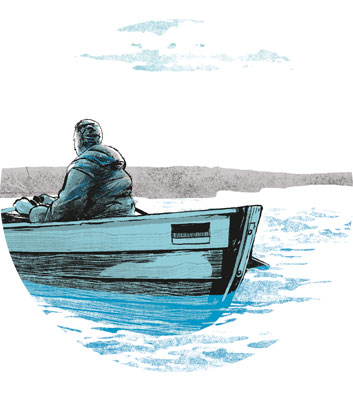
The annual survey of global experts conducted by the World Economic Forum points to some interesting changes. Traditionally, when asked to cite the biggest threats to global stability, participants would single out issues such as climate change. More recently, the same issues have been replaced with income inequality, migration and interstate conflict – tangible problems that have cropped up in many Western countries. These are all issues to which Germany has answers and can set an example for others to learn from.
This is seen in the response to old-fashioned globalisation by countries that want to be recognised for their own increasing significance in the world and that have been clamouring for some time for old powers to make room at the high table. Take for instance the BRICS – Brazil, Russia, India, China and South Africa – which, in its original embodiment, was identified as those nations whose rapidly growing economies were challenging the size and preponderance of the aristocratic G7. Indeed, in the last 15 years, Brazil, India and Russia have caught up with the smallest G7 economy (Italy) in terms of nominal GDP, while China has overtaken Japan to become the second largest economy in the world. The nominal GDP of the BRICS countries combined is similar to that of the European Union or the United States and will in all likelihood overtake both in the not too distant future. By 2040 the BRICS will account for more of the world’s GDP than the original G7.
But what is it that draws the BRICS close as nation states in their organised ‘rebellion’ against the global order? As it happens, one major attribute all BRICS members share is their exclusion from the places they believe they deserve in the existing world order. And being denied legitimate positions on the global stage by today’s dominant powers is proving to be very strong glue that holds the grouping together and, at some level, causes them to look for alternatives.
Germany has a major stake in the preservation of world order and could lead a push within the Western democracies to make room for emerging powers in a new world order that can preserve the institutions and values that Germany holds dear.
‘At the end of the day, it is clear that the global system will need to be reformed – and reformed swiftly if it is to adapt to the tremors we are witnessing today and to reinvent itself for a changing world.’
Germany knows there is a better way than building walls
At the end of the day, it is clear that the global system will need to be reformed – and reformed swiftly if it is to adapt to the tremors we are witnessing today and to reinvent itself for a changing world.
In the early years of the 20th century, it was the United States that eclipsed Great Britain, taking the world from an age of Pax Britannica to Pax Americana. They, with their allies, designed a new world order – the one that is now beginning to totter. Now that another power, China, seems set to exercise a certain dominance in the world, rules will need to be rewritten, creating, naturally, a degree of imbalance in the process.
How the world negotiates this imbalance remains to be seen. Building walls and looking within, as Trump and some others wish to do, is not a step in the right direction. Germany knows there is a better way – and the world looks to Berlin to show us that way.
published in akzente 2/18
Germany in the Eyes of the World
Germany‘s responsibility
